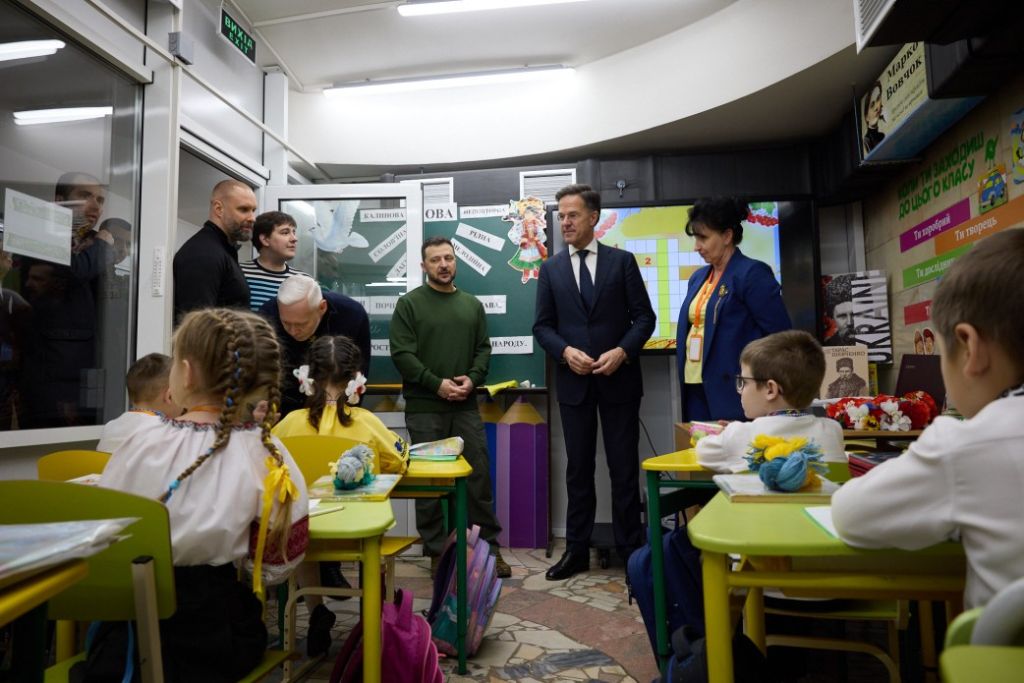In Kharkiv, Volodymyr Zelensky and Mark Rutte visited a metro school where classes are held in specially equipped classrooms.
In Kharkiv, President of Ukraine Volodymyr Zelenskyy and Prime Minister of the Netherlands Mark Rutte attended classes held in specially equipped classrooms at the Universytet metro station, as reported by The Presidential Office of Ukraine.
Volodymyr Zelenskyy and the Prime Minister attended classes such as math, Ukrainian, and English, and talked to the children. They asked about their favorite classes, hobbies and dreams and wished the children success.
858 children from 40 classes study at the Universytet station. In total, classrooms are equipped at five Kharkiv metro stations: “Universytet, Peremoha, Akademika Pavlova, Metrobudivnykiv, and Traktornyi Zavod. There are 106 classes with 2,191 children. The educational process is organized in two shifts. In addition to a teacher, each classroom has a tutor and a psychologist. Medical care, free meals, internet, video surveillance and security are provided. Children from all over the city are transported free of charge by buses accompanied by patrol police.
In January 2024, groups for preparing children for school started working in the Kharkiv metro. They are attended by 670 children on Saturdays and Sundays. The program involves 17 kindergartens and 41 groups. During its operation, the metro school was visited by journalists from 22 countries and representatives of international organizations, including the UN, UNICEF, and USAID.

